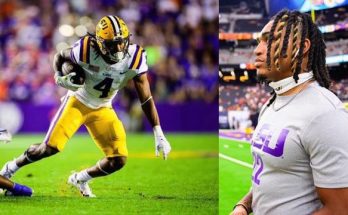The announcement that Auburn University has tapped Larry Vickers as the next head coach of its women’s basketball program represents a seismic shift for a Southern Conference powerhouse seeking renewed momentum. A veteran of Norfolk State, Vickers brings more than just an impressive résumé to the Plains—he brings a recruiting philosophy grounded in opportunity and vision, one that could reshape how Auburn pursues talent in the Southeastern Conference (SEC).
When Auburn Athletic Director John Cohen revealed Vickers’s appointment on March 23, 2025, it raised eyebrows across collegiate basketball. The hire marked one of the rare occasions a Power Four school has reached into HBCU ranks—specifically the Mid-Eastern Athletic Conference (MEAC)—to secure a head coaching candidate. Vickers commanded a 177‑99 overall record at Norfolk State over nine seasons, including an eye‑popping 83‑13 across his last three campaigns. That included three consecutive NCAA Tournament appearances and a program-record 30‑win season.
This is more than just statistical prowess; it’s about narrative. Vickers helped elevate Norfolk State to new heights, forging sustained excellence on a modest budget. His teams dominated defensively, ranking among the nation’s top scoring defenses and regularly forcing turnovers. In 2022‑23, they ranked first in the country in scoring defense. That level of discipline and tenacity tells a story attractive to recruits who want more than just exposure—they want a pathway to growth, accountability, and structure.
Auburn’s decision to hire Vickers over more familiar Power Four names was driven partly by resources and partly by timing. During the search, high‑profile coaches such as Adia Barnes and Kellie Harper were considered, but their buyouts and salary demands exceeded Auburn’s budget, especially amid NIL uncertainties and pandemic-driven fiscal constraints. Opting instead for a younger yet proven coach offered financial prudence without sacrificing potential. Vickers comes to Auburn making less than a third of the SEC average—roughly $568,000—while he was earning about $178,600 at Norfolk State.
But the financial advantage is just one facet of his recruiting pitch. Vickers carries a compelling backstory: a Norfolk State alum, former player and assistant coach, who became a head coach and led his alma mater to unprecedented success. Auburn will paint this narrative broadly—an underdog coach who built excellence from within, now transplanting that mentality to a national‑power stage. His personal journey—from walk‑on player to head coach—offers recruits both emotional resonance and a concrete model of diligence paying dividends.
Vickers seized Auburn’s Creed during his introductory address, proclaiming, “I believe in work, and hard work.” He vowed to marry that creed with machine‑like precision on both offense and defense. He speaks of rebounding formulas, trapping defenses, and defensive tenacity as hallmarks of his teams. When he first introduced himself publicly at Auburn’s Woltosz Center on March 24, 2025, he stressed a comprehensive vision: “hopefully our hard work can lead to championships… and a 100‑percent graduation rate.” That appeal—to both athletic and academic success—adds polish to his pitch when recruiting top‑tier high school and transfer players.
Crucially, Vickers has recognized the recruiting needs and competitive reality of the SEC. He’s stated that his “ideal Tiger” will be a player who embodies orange and blue pride from day one and competes with an SEC championship mindset, aiming for perfect seasons—aspirational, yes, but a statement of intent. ( That mentality opens the door for Auburn to attract players who might have overlooked the school previously because of recent performance or coaching instability.
Beyond individual motivation, Vickers addresses Auburn’s broader recruiting infrastructure. He has begun assembling a staff steeped in regional ties. He brought on assistants like Rodney Hill, who came from Texas A&M and possesses deep southern recruiting networks—someone who understands Auburn’s backyard. By blending his HBCU success with locale-specific recruiting know-how, Vickers ensures a broader reach and familiarity with the pipelines that funnel into SEC rosters every year.
There is practical advantage, too, in his ability to navigate the transfer portal. In his first few months, Vickers expressed urgency about building a roster of “quality people” who believe in Auburn. He has faced immediate challenges—departures, transfers and a thin existing roster—but he isn’t overwhelmed. He’s leaned into portal acquisition, aiming to inject competitiveness from day one. The message: Auburn will no longer rely on attrition or hopeful rebuilds—they’re going to go out and get talent proactively.
Indeed, early assessments suggest this hire is being watched across women’s college basketball. Analysts note the shift from Power Four stardom to HBCU excellence—a bridge never frequently made in women’s hoops. As one SB Nation commentator put it, “A lot of eyes will be on Vickers… not solely because of what his future win‑loss record might be, but also what resources Auburn gives him to be competitive in the SEC.”
But recruiting SEC-level talent demands a recruitment narrative infused with both challenge and promise. Vickers’ own words—“We want to go into every year looking to go 31‑0”—aren’t just talk. They establish a standard. By publicly stating that Auburn should aim for perfection—not just winning seasons—he sets a tone of high expectations. Recruits, particularly elite ones weighing offer sheets, respond to certainty. And Vickers doesn’t shy away from clarity: classes come to Auburn to win championships, be seen, and graduate.
He also leans into identity recruiting. His hiring is a signal to Black college-athletes that Auburn sees them not just as players, but as leaders and culture-definers. As a successful Black coach rising through HBCU ranks, Vickers becomes a role model. That subtle messaging can carry immense weight when recruits consider cultural fit and long-term development. Such messaging is part of his strength—he knows firsthand what it means to grow within an HBCU environment.
Of course, there are skeptics. Reddit fans and regional analysts remind Auburn that a 6‑9 coach from Norfolk State faces a high bar in the SEC. One comment noted, “going 30‑5 in the MEAC is a world apart from the SEC… Hiring a coach that relies on the press defense… is not a smart move in the SEC.” The challenge is real; success will require adaptation to a more athletic, skilled landscape. Yet, Vickers shows confidence in adjustments and building through hardworking play. He speaks not of transplanting Norfolk State’s style as-is, but applying its principles at a higher level—with personnel upgraded, intensity consistent.
University officials likewise acknowledge the risk—but also the upside. Cohen has said, “no one has worked harder for an opportunity like this than Coach Vickers,” emphasizing technical expertise and vision. ( That respect within Auburn’s administration matters. When the AD is publicly committed, it strengthens the program’s message to recruits: this isn’t an interim solution; this is a long-term investment.
Off the court, Vickers’ personable presence speaks volumes. At Auburn’s Chamber of Commerce event in mid‑June, he broke down his “DIALED IN” values—Dedicated, Intensity, Accountability, Leadership, Energy, Discipline. ( These six pillars reflect a system that embraces structure, character-building, and community alignment. That resonates in recruiting pitches—parents, coaches, players—because development is about more than flashes and highlights; it’s about growth, stability, and culture.
Graduation rates, too, are part of Vickers’ recruiting message. He emphasizes “100‑percent graduation rates,” and Auburn’s academic infrastructure amplifies that. When recruits evaluate programs, the balance between athletics and academics is increasingly critical. Vickers frames Auburn not just as a path to the WNBA or NIL earnings, but as a place to earn a degree, build lifelong networks, and develop professionally. That nuance is crucial in drawing recruits who view college basketball as a holistic journey.
That said, expectations in Auburn are high. The fanbase recalls past glory—three straight Final Four appearances in the late 1980s—and wants women’s hoops to rise again. Vickers knows that foundation; Auburn wasn’t just another job—it’s a restored dream. He talks about rolling Toomer’s Corner again and reestablishing national relevance.
The true test will be how Vickers, equipped with a fresh staffing structure, craftily balances talent, culture and competition. The first SEC recruiting class in his tenure, and the first portal acquisitions, will reveal whether his pitch lands. The second, third and fourth classes will determine whether Auburn’s investment in a coach from outside traditional Power Four pipelines was visionary—or merely aspirational.
In the short term, his hiring elevates Auburn’s visibility. In the long term, it could redefine resource allocation across college basketball—challenging schools to look beyond traditional pedigrees when recruiting coaches. If Vickers thrives, other Power Four programs might mirror Auburn’s model—offering opportunity to proven coaches from mid-major and HBCU conferences.
And that could alter the gender landscape of coaching opportunity itself, connecting success, diversity and resource pragmatism in measurable ways.
Coaching hires always come with risk. But Auburn has bet on character, tenacity and track record over name recognition. They’ve bet that Vickers can translate his defensive mastery and culture-first recruiting into SEC relevance. They’ve bet that his underdog story will resonate with recruits seeking authenticity, pride, and a chance to be part of a renaissance.
As Auburn’s new era begins, the recruiting advantage isn’t just about who he signs—it’s about the story he tells. It’s about a coach who built a program from the ground up, now pitching Auburn’s potential on national stages. That pitch is potent—if it converts top-level prospects, balances portal moves, and delivers results, Vickers won’t simply have met expectations; he’ll have reset them.
And if that happens, Auburn will look like it foresaw an opening in how women’s basketball builds teams, values culture, and empowers coaches. Other programs will take notice. And the hire of Larry Vickers will emerge not as an outlier, but as a turning point in the SEC’s—and perhaps the nation’s—women’s game.
War Eagle.



